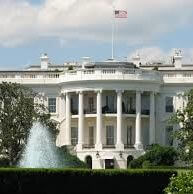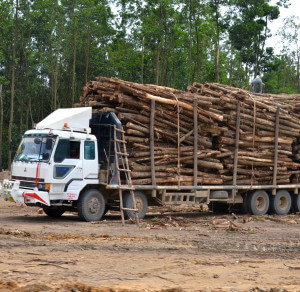News and Events
Major Corporations Bring Climate Change Commitments to the White House
 In the Roosevelt Room of the White House, a group of major international corporate leaders led by Unilever’s CEO Paul Polman met with President Obama’s Senior Advisor Valerie Jarrett, US AID Administrator Raj Shah, and officials from the Council on Environmental Quality to explore synergies between corporate commitments and the U.S. Government’s strategies to combat climate change. This landmark meeting brought together key members of business, banking, government, and civil society to focus principally on practical, scalable solutions toward ending tropical deforestation.
In the Roosevelt Room of the White House, a group of major international corporate leaders led by Unilever’s CEO Paul Polman met with President Obama’s Senior Advisor Valerie Jarrett, US AID Administrator Raj Shah, and officials from the Council on Environmental Quality to explore synergies between corporate commitments and the U.S. Government’s strategies to combat climate change. This landmark meeting brought together key members of business, banking, government, and civil society to focus principally on practical, scalable solutions toward ending tropical deforestation.
AD Partners was pleased to have taken a substantive role in convening the West Wing meeting, which highlighted commitments by the Consumer Goods Forum to achieve zero net deforestation by 2020. The discussion also included opportunities to phase out hydrofluorocarbon (HFC) refrigerants by 2015 and replace them with non-HFC refrigerants.
Most of the corporations who attended the meeting are part of the Consumer Goods Forum (CGF), a global association of more than 400 leading retail and manufacturing companies whose combined revenues represent over $3.1 trillion –over 3% of global GDP.
The discussion included perspectives from various retailers and manufacturers about some of the challenges they face in moving toward sustainably-sourced supply chains. The conversation included perspectives by Wal-Mart’s Mike Duke, Nestle’s Paul Bulcke, SC Johnson’s Fisk Johnson, McDonalds’ J.C. Gonzalez Mendez and Cargill’s Paul Conway. Coca Cola’s Jeff Seabright and Ahold’s Dick Boer spoke about the issues involved in cutting back on HFC gases. Jeremy Wilson, representing ten of the largest banks in the world, inspired the group with information about how the banking sector is evolving its lending practices to reflect the environment cost to the planet.
Much of the forestry conversation centered on the recently formed Tropical Forest Alliance 2020 (TFA). This new association brings together business, government and civil society to advance sustainable, deforestation-free supply chains. It was for this reason, meeting attendees also included World Wildlife Fund’s Jason Clay, National Wildlife Federation’s Larry Schweiger, Conservation International’s Russ Mittermeier, and World Resources Institute’s Andrew Steer. Each of these organization leaders spoke about the kinds of contributions that are needed by the NGO community that can complement and facilitate company commitments, particularly with regard to the key drivers of deforestation: palm oil, beef, pulp and paper, and soy.

One of the leading causes of rain forest destruction is logging, especially from tropical forests in Asia, Africa and South America.
Unilever CEO Paul Polman closed with a discussion of how the U.S. Government could help facilitate the realization of their collective pledges to mitigate climate change impacts. This included how public procurement policies could adopt sustainable standards, especially with regard to palm oil. Mr. Polman also spoke about the need to bring India and China – both major importers of soy and palm oil – into these conversations.
For their part, the White House senior team expressed their interest in getting more deeply involved and seeing where this public private partnership can make a real difference.


































